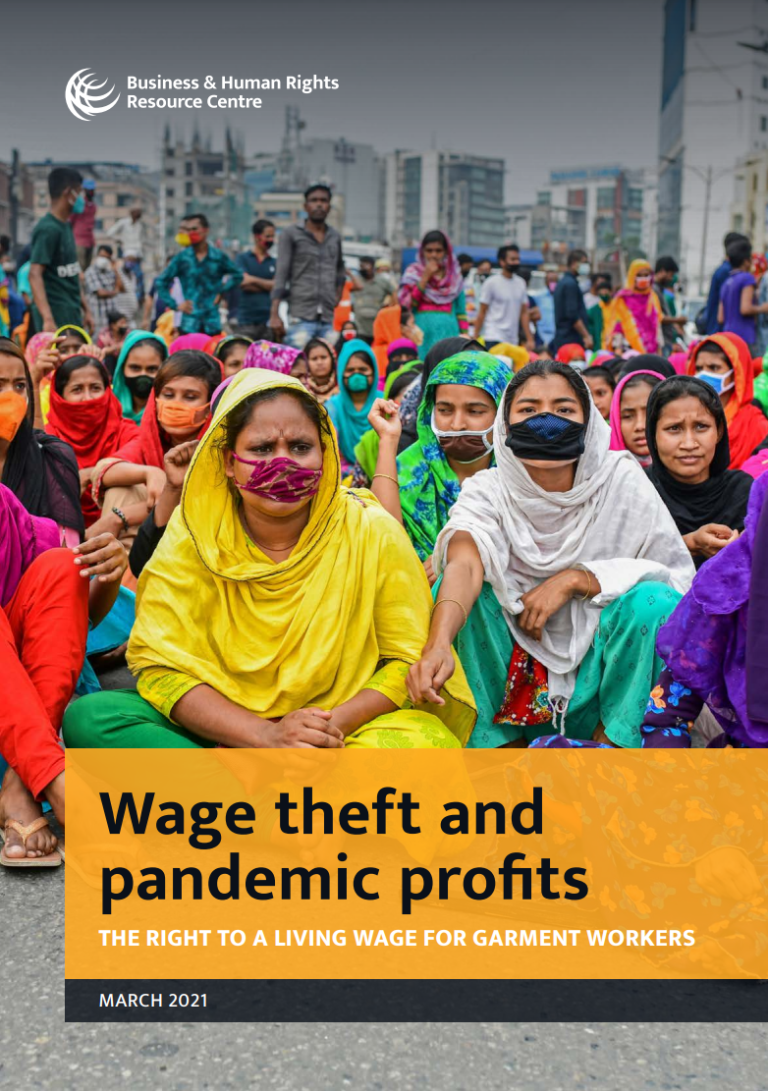As stores closed around the world in response to COVID-19 lockdowns in early 2020, fashion brands and retailers sought to minimize their losses, shifting the financial burden of the disruption to the bottom of their supply chain. Cancelled orders, delayed payments and demands for huge ‘discounts’ from suppliers – the practice of paying only a fraction of the agreed amount for clothes ordered – had a catastrophic impact on workers. In response, BHRRC launched its COVID-19 apparel tracker, which monitors brands’ responses to the pandemic and the impact on workers in their supply chains. Since publishing the tracker in May 2020, international pressure through the Pay Up campaign, has led some brands, like Gap and Primark, to change their position and commit to paying for completed and in-production orders in full. Others, such as Walmart and Arcadia Group (Topshop), refuse to budge and pay what they owe. Recent research has found major fashion brands refused to pay overseas suppliers for over US $16 billion of goods during the pandemic between April and June 2020.

